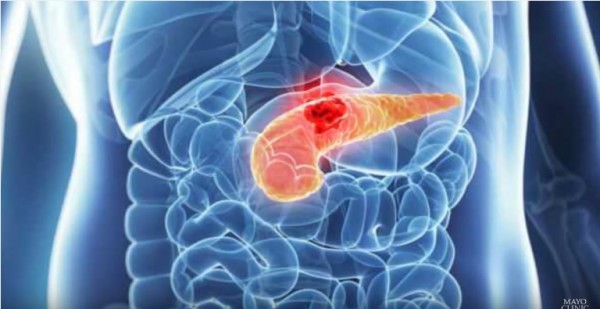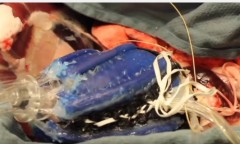By Charissa Echavez, | January 30, 2017

Scientists said that daily screen time of three hours is linked to many risk factors associated with the development of diabetes in kids. (YouTube)
An emerging study suggested that an onset or rapid deterioration of diabetes could be a warning sign for early, hidden pancreatic cancer, according to a new research presented at the European Cancer Congress in Amsterdam.
The research found that at least half of the 1 million patients diagnosed with pancreatic cancer in Italy and Belgium had type 2 diabetes the previous year. "In Belgium 25% of cases were diagnosed within 90 days and in Lombardy it was 18%. After the first year, the proportion of diagnosed pancreatic cancers dropped dramatically," Alice Koechlin, from the International Prevention Research Institute in Lyon, France, said.
Like Us on Facebook
Researchers found that unlike patients who continued to take oral anti-diabetic drugs, patients from Belgium and Lombardy had a 3.5-fold greater risk of being diagnosed with pancreatic cancer in the first three months after they are first prescribed with incretins, which are metabolic hormones that stimulate the pancreas to secrete insulin to lower blood glucose levels. The figure dropped to a 2.3-fold risk over the next three to six months, then to a two-fold risk between the sixth and 12th months, and to a significant 1.7-fold risk after the first year.
Moreover, a deterioration of the condition that required patients to switch to a more aggressive anti-diabetic therapy was associated with a seven-fold increased risk of being diagnosed with pancreatic cancer.
Researchers utilized prescription data to identify 368,377 patients suffering from type 2 diabetes between 2008 and 2013 in Belgium and 456,311 patients in Lombardy from 2008 to 2012. At least 885 pancreatic cancer cases in Belgium and 1,872 in Lombardy were reported during this time.
However, Professor Philippe Autier, one of the researchers and also from the International Prevention Research Institute, noted that even though past studies have already linked type 2 diabetes with pancreatic cancer, their relationship is complex.
"...It looks like it is the intake of incretin drugs that could be the trigger of the pancreatic cancer, while in reality, it is the pancreatic cancer that causes a deterioration of diabetes, which is followed by the prescription of incretins," Autier said, calling the phenomenon the "reverse causation."
However, it could be noted that non-invasive methods to detect early onset of pancreatic cancer are still unavailable. Koechlin is hoping that this study could pave way for more research to develop blood markers that could help detect presence of pancreatic cancer.
-
Use of Coronavirus Pandemic Drones Raises Privacy Concerns: Drones Spread Fear, Local Officials Say

-
Coronavirus Hampers The Delivery Of Lockheed Martin F-35 Stealth Fighters For 2020

-
Instagram Speeds Up Plans to Add Account Memorialization Feature Due to COVID-19 Deaths

-
NASA: Perseverance Plans to Bring 'Mars Rock' to Earth in 2031

-
600 Dead And 3,000 In The Hospital as Iranians Believed Drinking High-Concentrations of Alcohol Can Cure The Coronavirus

-
600 Dead And 3,000 In The Hospital as Iranians Believed Drinking High-Concentrations of Alcohol Can Cure The Coronavirus

-
COVID-19: Doctors, Nurses Use Virtual Reality to Learn New Skills in Treating Coronavirus Patients










